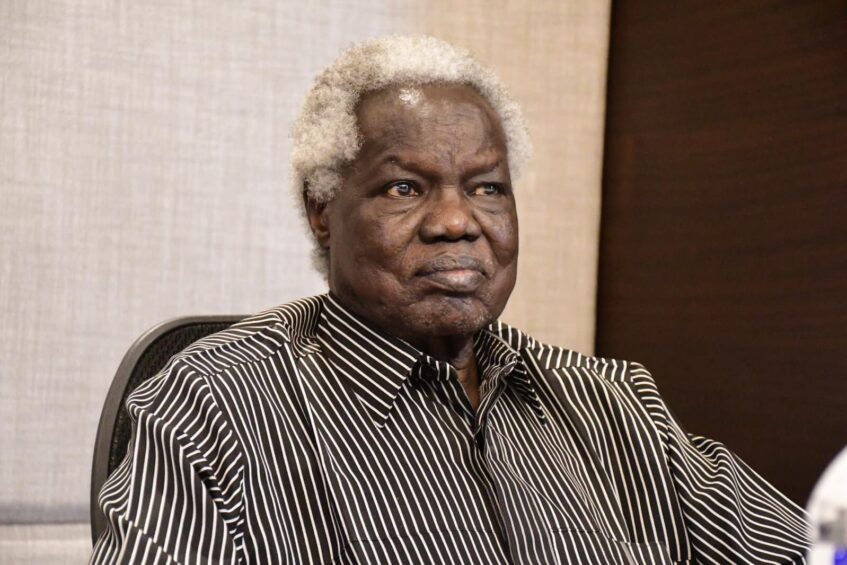Africa
South Sudan’s President Dismisses Long-Serving Chief Justice in Surprise Move
Kiir’s recent moves, including the arrest of Machar and several allies, have strained the 2018 peace agreement, prompting international concern about stability.

Juba, South Sudan – May 29, 2025
President Salva Kiir Mayardit has dismissed South Sudan’s Chief Justice Chan Reec Madut and Deputy Chief Justice Dr. John Gatwech Lul via presidential decree announced on state broadcaster SSBC Wednesday night.
The abrupt dismissals have sparked widespread speculation about the motives behind the move and its potential impact on the nation’s fragile judicial system.
Madut, who served as Chief Justice since South Sudan’s independence in 2011, and his deputy were replaced by Justice Dr. Benjamin Baak Deng Bol as the new Chief Justice and Justice Laku Trankilo Nyumbi as Deputy Chief Justice.
The announcement caught many in legal and political circles off guard, marking a significant shift in leadership of the judiciary—a critical institution in a country grappling with political instability and ethnic tensions.
The decree provided no official explanation for the dismissals.
However, sources close to the government suggest the move may be linked to growing criticism of Madut’s tenure.
In recent months, South Sudanese lawyers petitioned President Kiir to remove Madut, accusing him of failing to uphold judicial independence and deliver justice effectively.
Critics have pointed to Madut’s controversial 2015 endorsement of Kiir’s decision to create 28 new states—a move later challenged as unconstitutional—as evidence of his alignment with the executive branch. His extensive experience, beginning shortly after independence when he previously served as deputy chair of the Southern Sudan Referendum Commission, made him central to shaping the young nation’s judiciary.
However, his perceived closeness to Kiir’s administration drew accusations of bias, particularly from opposition groups.
The appointments signal a new chapter for South Sudan’s judiciary.
Baak Deng brings what officials describe as “a wealth of legal experience” and is expected to navigate the complex challenges of leading a judicial system in a country marked by ongoing political strife and civil war history. Nyumbi will support Baak Deng in what observers anticipate will be a delicate balancing act to restore public confidence in the judiciary.
The dismissals come amid heightened political tension in South Sudan.
Recent months have seen escalating conflicts between forces loyal to President Kiir and those aligned with First Vice President Riek Machar, raising fears of a return to the civil war that devastated the country from 2013 to 2018.
Kiir’s recent moves, including the arrest of Machar and several allies, have strained the 2018 peace agreement, prompting international concern about stability.
Some analysts speculate the judicial shake-up may be part of Kiir’s broader strategy to consolidate power amid these tensions, though no direct evidence confirms this theory.
Reactions have been divided.
Some South Sudanese legal professionals and activists view the change as a potential opportunity for reform. “This could be the start of long-awaited changes in the judiciary,” said one Juba-based lawyer, speaking anonymously due to the issue’s sensitivity.
“But it depends on whether the new appointees can act independently.”
Others expressed skepticism, noting Kiir’s history of appointing loyalists to key positions.
Social media commentary echoed this sentiment, suggesting Madut’s removal might be a step toward reform but questioning whether new leadership would prioritize judicial independence.
As South Sudan navigates this transition, the international community watches closely.
The judiciary’s role in upholding rule of law is critical in a nation where ethnic divisions, political rivalries, and economic challenges—exacerbated by collapsing oil revenues—continue to threaten stability.
The new Chief Justice and deputy face the daunting task of steering the judiciary through turbulent times while addressing public demands for impartiality and accountability.
The reasons behind Kiir’s decision remain unclear, and the impact of this judicial overhaul is yet to be seen.
As one observer noted: “The judiciary is a pillar of any nation, but in South Sudan, it’s a pillar under pressure. The question is whether this change will strengthen it or weaken it further.”
Kenya Insights allows guest blogging, if you want to be published on Kenya’s most authoritative and accurate blog, have an expose, news TIPS, story angles, human interest stories, drop us an email on [email protected] or via Telegram
-

 Grapevine2 weeks ago
Grapevine2 weeks agoAlleged Male Lover Claims His Life Is in Danger, Leaks Screenshots and Private Videos Linking SportPesa CEO Ronald Karauri
-

 Grapevine1 week ago
Grapevine1 week agoRussian Man’s Secret Sex Recordings Ignite Fury as Questions Mount Over Consent and Easy Pick-Ups in Nairobi
-

 News5 days ago
News5 days agoTHE FIRM IN THE DOCK: How Kaplan and Stratton Became the Most Scrutinised Law Firm in Kenya
-

 Investigations7 days ago
Investigations7 days agoMulti-Million Dollar Fraud: Three Kenyans Face US Extradition in Massive Cybercrime Conspiracy
-

 Economy6 days ago
Economy6 days agoIran Demands Arrest, Prosecution Of Kenya’s Cup of Joe Director Director Over Sh2.6 Billion Tea Fraud
-

 Business6 days ago
Business6 days agoA Farm in Kenya’s Rift Valley Ignites a National Reckoning With Israeli Investment
-

 Africa1 week ago
Africa1 week agoFBI Investigates Congresswoman Ilhan Omar’s Husband’s Sh3.8 Billion Businesses in Kenya, Somalia and Dubai
-

 Business2 weeks ago
Business2 weeks agoM-Gas Pursues Carbon Credit Billions as Koko Networks Wreckage Exposes Market’s Dark Underbelly















